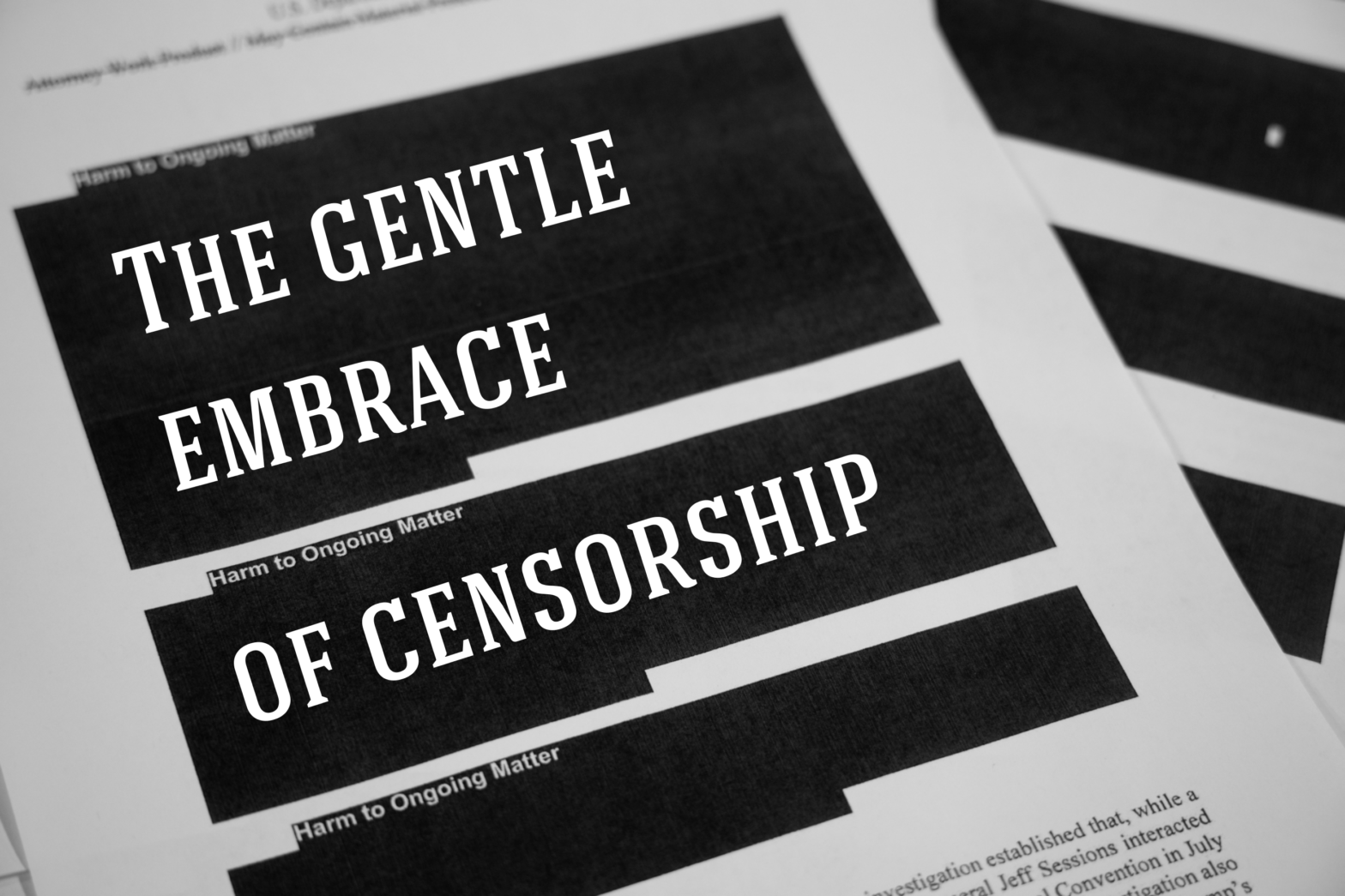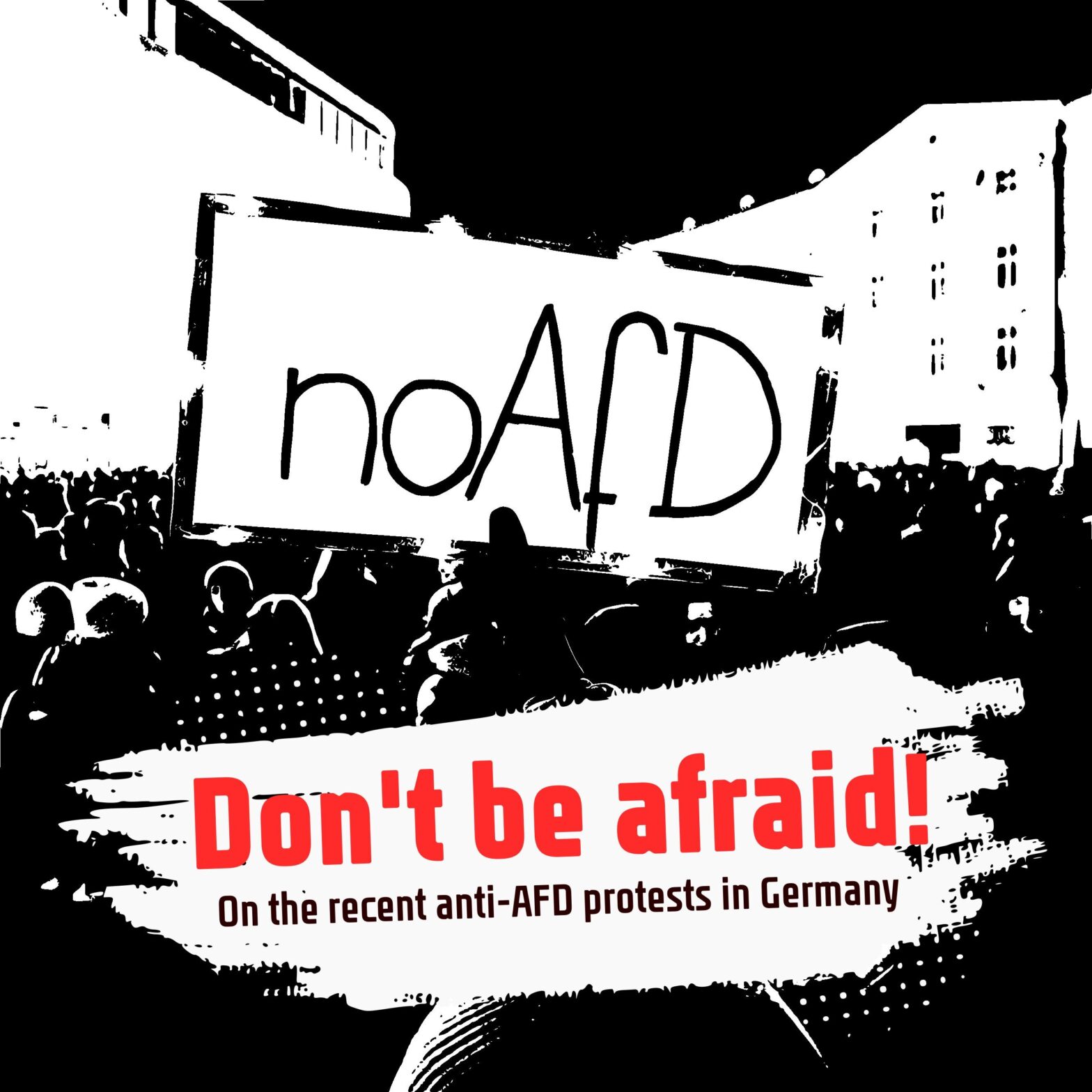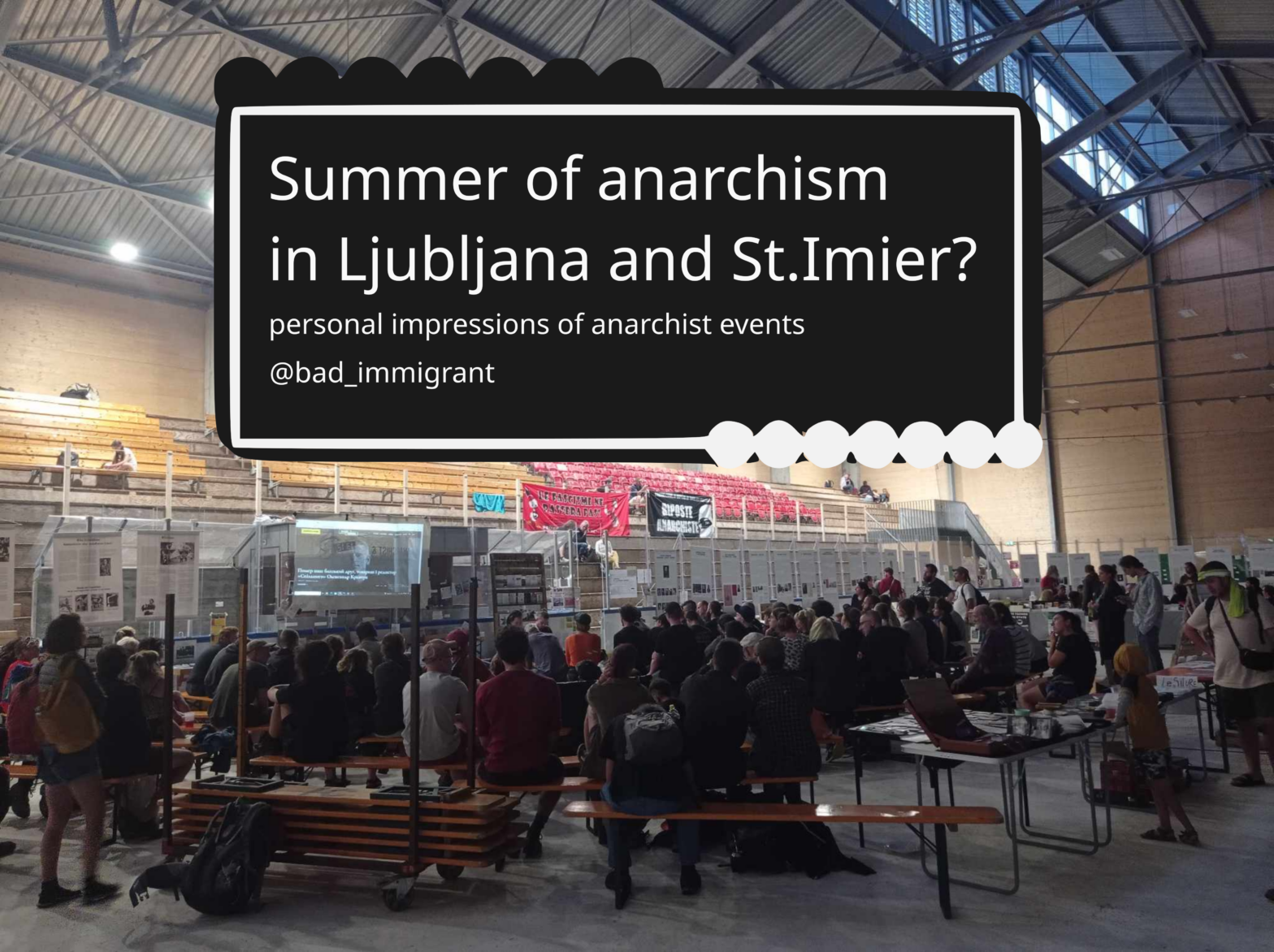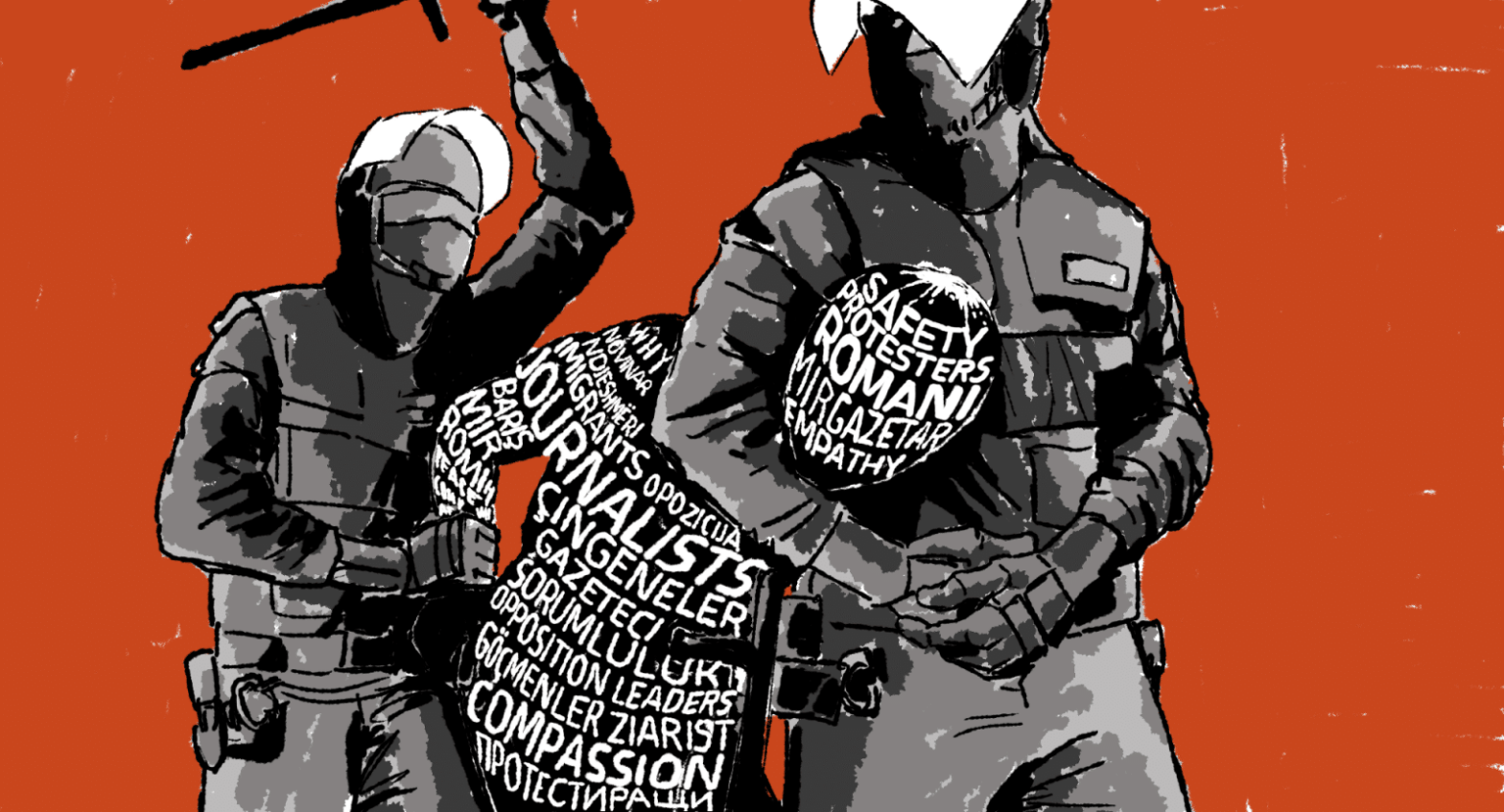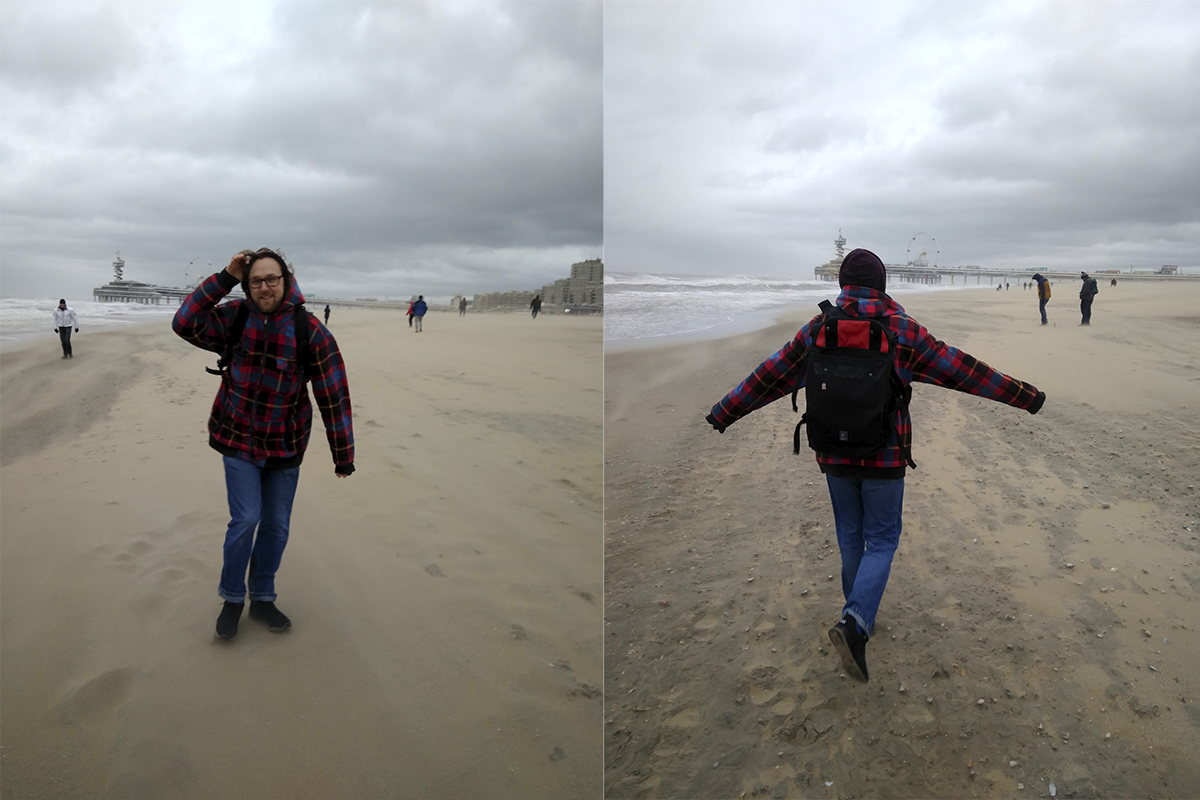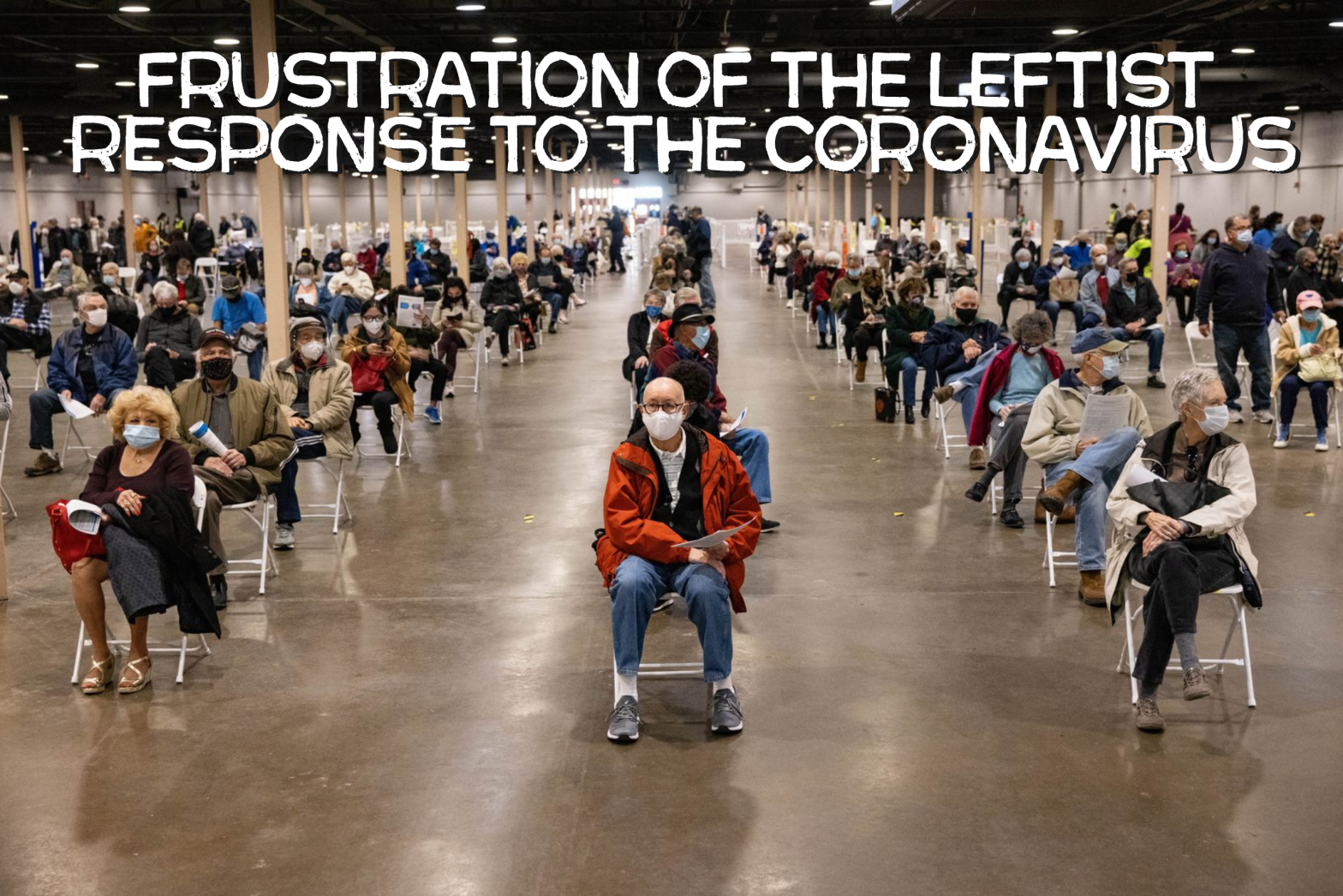One year after the Hamas attack on Israel, I think it is important to take a look at how the Islamist group’s escalation of the conflict that has been going on for generations has once again shown how the German left fails to understand international politics. As a result, we see how the left and many anarchists in the country can’t find a reasonable approach to the war in Israel/Palestine and now in Lebanon. This text will hardly come as a surprise to activists in Germany. At the same time, I think it’s important for anarchists and leftists in other regions to understand the German “Antideutsch” and not just see it as a joke version of some kind of political correctness, but rather as a political movement with its own ideals.
Category: General
The gentle embrace of censorship
In Berlin on February 24, the Ukrainian diaspora is holding an action on the anniversary of the start of the full-scale invasion. Local groups (mostly made up of immigrants from Belarus/Russia) have called to join this action in the format of an anarchist bloc, in response to the Pramen collective’s call for this kind of action across Europe. One of the comrades involved in the preparations for the action today threw me the information that their call was removed from the local indymedia without any comments – the German indymedia is still alive and actively filled with various content, from authoritarian left to anarchist. It’s hard for me not to comment on such a situation.
Нежные объятия цензуры
В Берлине 24 февраля украинская диаспора проводит акцию в годовщину начала полномасштабного вторжения. Местные группы (в основном состоящие из иммигрантов из Беларуси/России) призвали присоединиться к этой акции в формате анархического блока в ответ на призыв коллектива Прамень проводить такого рода акции по всей Европе. Один из товарищей, занимающихся подготовкой к акции сегодня скинул мне информацию, что их призыв удалили с местной индимедии без каких-либо комментариев – немецкая индимедия все еще живет и активно наполняется различным контентом, от авторитарно левого до анархического. Мне сложно такую ситуацию не прокомментировать.
Don’t be afraid…
On the recent anti-AFD protests in Germany
For over a week, hundreds of thousands of Germans have been taking to the streets against the far-right AFD, whose plan to deport millions of people has been exposed by journalists. Secret meetings in hotels with various types of fascists – these events happen regularly from time to time. But it is rare for the content of these meetings to be made public. The anger and frustration of certain parts of the liberal and left-liberal political spectrum is very clear – they don’t want neo-Nazis or fascists to come to power in the country. And that is a good thing.
Summer of anarchism in Ljubljana and St.Imier? [en, ru, fr]
This July I managed to visit two big anarchist festivals – Balkan Anarchist Bookfair and Anarchy 2023 in St.Imier. The first event attracted hundreds of activists mostly from the Balkans and Western Europe, while the Swiss festival had more people from outside the EU.
What’s up with police violence in Belarus?
When I was just starting to get involved in anarchist organizing in Belarus I downloaded somewhere out there with my 100MB traffic per month 5MB pdf version of Huey P. Newton’s “Revolutionary Suicide” about the history of black panthers. It was quite an easy and fast read that touched a lot of different sides of being active under constant oppressions from the state. One of the most quoted stories from the books is about the cop who beats panthers at the police station at some part of the book and tells others that they should be done as soon as possible as he has to go the church next day with his family.
My comrade Evgeny Rubashko
I wanted to write this text for many months. It’s been almost a year since Belarusian regime captured and tortured anarchist activists Evgeny Rubashko. We know each other many years, and I feel that it is somehow my responsibility to tell at least some parts of his story, so the world know what an amazing person he is. He is not the only close comrade siting in prison in Belarus right now, and I hope in coming weeks I will find time and energy to write more about the anarchists of Belarus who dared to stand up against the dictatorship despite all the risks.
Against the war by all means?
Today a group of prominent authors and cultural personalities published an open letter to still German chancellor Olaf Scholz, calling him to stop any further delivery of weapons to Ukraine as this can provoke the third world war. This position is not new. In fact, there are a lot of politicians who still believe that their actions can provoke Putin and “force” him into starting the war with NATO countries.
Разочарование левацкой реакцией на коронавирус
За два года одного из крупнейших социальных кризисов анархисты и левые не смогли выработать никакой стратегии, как с ним бороться. Скромные попытки разработать эти стратегии довольно часто игнорировались большинством активистов или людей, близких к политическим кругам. Многие, хотя и жаловались на социальную изоляцию, наслаждались своим длительным отпуском от активизма. В Германии так называемый “пленарный” активизм, когда люди проводят большую часть своего нерабочего времени, сидя на собраниях, трансформировался в активизм онлайн-собраний. Люди тратили часы на разговоры о том, что нужно сделать, и довольно часто бездействовали: из-за высокой загруженности онлайн-встреч не оставалось времени на реальные действия.
Enttäuschung über die Reaktion der Linken auf das Coronavirus
In zwei Jahren einer der größten sozialen Krisen haben Anarchisten und Linke keine Strategie entwickelt, wie sie damit umgehen können. Die wenigen Versuche, solche Strategien zu entwickeln, wurden von den meisten Aktivisten oder Menschen, die den politischen Kreisen nahestehen, oft ignoriert. Viele beklagten sich zwar über die soziale Isolation, genossen aber ihren verlängerten Urlaub vom politischen Aktivismus. In Deutschland wandelte sich der so genannte “Plena”-Aktivismus, bei dem die Menschen den größten Teil ihrer Freizeit in Meetings verbringen, in Online-Meeting-Aktivismus. Die Menschen verbringen täglich viele Stunden damit, darüber zu reden, was getan werden sollte, und scheitern nicht selten daran, etwas zu tun: Wegen der hohen Auslastung der Online-Meetings bleibt keine Zeit, um tatsächlich zu aktiv werden.

